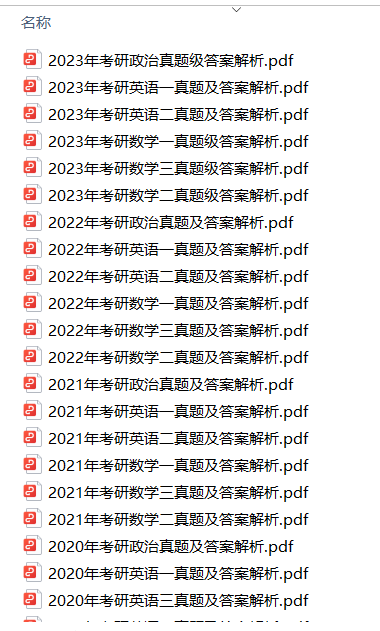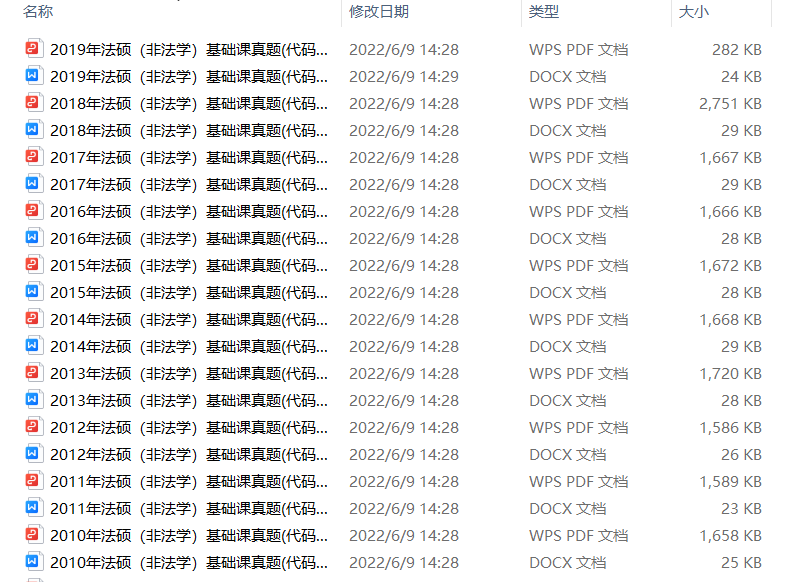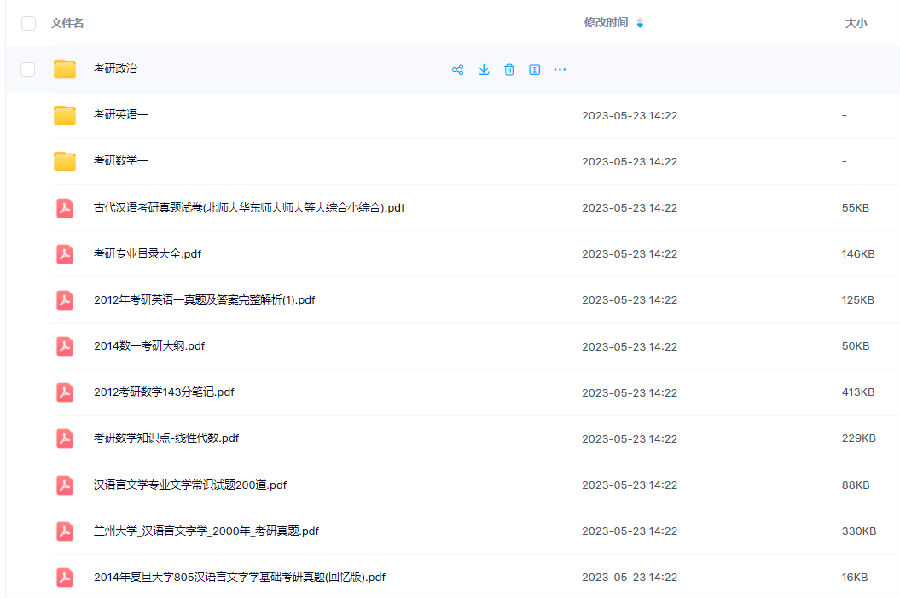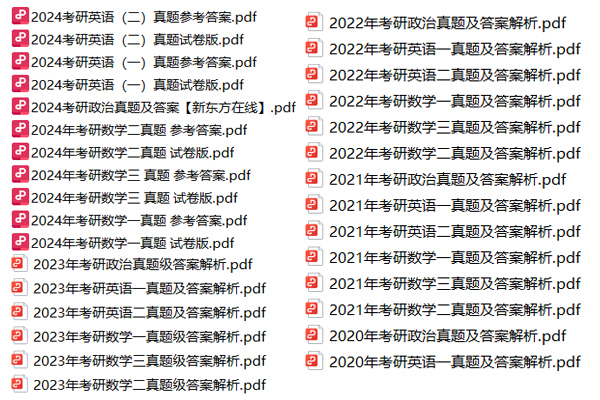特惠-26考研冲刺
特惠-27考研课
双证-在职硕士
免联考-同等学力
26考研-肖八笔记
26考研-时政刷题
26考研-作文押题
26考研-全套真题
26考研-提前估分
保研-路线图
27考研-智能择校
27考研-英语测评
27考研-新大纲对比
热门-计算机择校

扫码加入训练营
牢记核心词
学习得礼盒
真题是非常重要的学习资料,它能更好地帮助我们巩固所学的知识,大家在备考时候要多做一些真题,这样对真题高频考点有所了解,更有目的做好备战,新东方在线考研小编整理了“宁波大学2020考研真题:244英语(二外)”,希望对考生能有帮助。
宁波大学2020考研真题:244英语(二外)
Part I ClozeTest (20 points, 1 point each)
Directions: In this part, you are required to read the given passagecarefully, and then fill in each blank with an appropriate word given in thetable. Each word is allowed to be used only once. You should not change theform of the word but you can capitalize the initial letter if the word is usedat the beginning of the sentence. Write your choices in the Answer Sheet.
Passage One
what | why | how | that | as |
but | although | once | though | if |
Have you ever heard of acondition known as “general paresis(麻痹性痴呆)of the insane”? Probably not. In the19th century general paresis was one of the most commonly diagnosed mentaldisorders. Its symptoms included odd social behaviors, impaired judgment,depressed mood and difficulty concentrating. Around the turn of the 20thcentury, 1 , we figured 2 it really was—a form of late-stage syphilis(梅毒)infecting the brain anddisrupting its function. A few decades later we discovered a highly effectivetreatment: penicillin.
3 general paresis is now very rare, its exampleis still instructive. Any honest researcher will tell you we don’t currentlyhave good explanations for most mental disorders. Depression,obsessive-compulsive disorder, schizophrenia(精神分裂症) —we don’t really know how thesepatterns of disrupted thought, behavior and emotion develop or 4 theystick around.
Yet the hope remains 5 ,much like with general paresis, we may soon discover the root causes of theseillnesses, and this knowledge may tell us 6 totreat them. An example of this hope can be seen in the popular notion that a“chemical imbalance” causes depression. This might turn out to be true, 7 thetruth is we don’t know.
Some researchers arestarting to think that for many mental disorders, such hope might be based onincorrect assumptions. Instead of having one root cause, 8 general paresis did, mental disorders might becaused by many mechanisms acting together. These mechanisms might be situatedin the brain, but they could also be located in the body and even in theexternal environment, interacting with one another in a network to create thepatterns of distress and dysfunction we currently recognize and label asvarieties of mental illness. In this more complex view, patterns such asdepression and generalized anxiety arise as tendencies in the humanbrain-body-environment system. 9 thepatterns are established, they are hard to change because the network continuesto maintain them.
10 thecausal structures of many mental disorders are complex, how should we seek toilluminate them? I think recognizing the complexity should push us to rethinkhow mental illness is studied.
Passage Two
figures | regularly | variety | horrific | claim |
inclusive | pose | aspire | contribution | insult |
The last few years haveseen the rise of a thought-provoking civic discourse on who we as a societyshould publicly honor, resulting in (among other things) the removal of statuesfrom parks (including statues of scientists) and the renaming of schools.Though bad-faith critics 11 that such actions are about “erasinghistory,” they’re really about a simple question: which 12 fromour history and culture represent values to which we should all 13 and which do not? So far, these importantdiscussions have largely not reached a scientific discipline whosepractitioners 14 make the choice of which people topublicly honor: taxonomy(分类学).
Taxonomists may name anewly-described species after a person for a(n) 15 ofreasons, including recognizing that person’s role in discovering that species,acknowledging someone for a longstanding 16 totheir field or showing respect to someone unrelated to the field but who thescientist personally likes. There are also scientists who auction off speciesnaming rights to fund their science, and even those who name species afterpeople to 17 them. Though some taxonomists maydispute this characterization, in many cases naming a species after someone ischoosing to publicly honor that person—it is certainly widely perceived thatway.
I’m no taxonomist, but asa member of my professional society’s equity and diversity committee, mycolleagues and I spend a lot of time discussing changes we can make to the dayto day operations of scientific research that will help make academia more 18 ,welcoming, and just. To that end, I 19 thefollowing questions: should scientists be publicly honoring people who havecommitted human rights violations or other 20 crimes?And what can and should be done about species already named after suchmonsters?
Part IIReading Comprehension (40 points)
Section A(10 points, 1 point each)
Directions: In this section, there is a passage with ten blanks. You arerequired to select one word for each blank from a list of choices given in aword bank following the passage. You’re your choices by writing down thecorresponding letter in the Answer Sheet.
For years the prevailing wisdom on how immigrants fare in thelabor market has been based on the notion that assimilation is the key, evendetermining factor. Drawing mainly on 1970 Census data, studies concluded thatwhile earnings of new immigrants were lower than those of comparably situatednative worker, earnings of immigrants who had been here for more than a decade 1 those of native workers of the same age,education and so on. The assumption was that as immigrants 2 language and work skills, their earnings grew.
Now some economists dispute this conclusion. The positive 3 ofassimilation is so small that there is little chance the 4 immigrantwill ever catch up with the native workers.
The 1970 Census was the first in 30 years to ask individualswhen they had arrived in the United States. When comparable data from the l980Census became 5 , researchers could then track theprogress of immigrants who arrived at different times. It was found that mostrecently arrived Hispanic immigrants exhibit lower earnings and higher 6 rates than earlier Hispanic immigrants.
There was one major exception. More recent Mexican immigrantshad 7 higher employment rates but lowerearnings than the earlier group. This is because the population of recentimmigrants included many illegal aliens who would accept low paying jobs.
What seems most 8 isthat the immigrants who arrived prior to 1964 are fundamentally different fromthose who arrived later. Immigration laws were changed in 1964, and theimmigrants who arrived under the earlier law were 9 entrylargely because of their 10 . Those who came after 1964 were admittedbecause they had close relatives in the country. The performance discrepanciesseem to hold true across the board.
It seems like a very simple notion, but until recently,nobody was raising it. In every plain term different waves of immigrants aredifferent.
|
Section B(30 points, 2 points each)
Directions: There are three passages in this section. Each passage isfollowed by some questions or unfinished statements. For each of them there arefour choices marked A), B), C) and D). You should decide on the best choice andwrite down the corresponding letter in the Answer Sheet.
Passage One
Questions 1 to 5 are basedon the following passage.
Every British citizen whois employed or self-employed is obliged to pay a weekly contribution to thenational insurance and health schemes. An employer also makes a contributionfor each of his employees, and the Government too pays a certain amount. Thisplan was brought into being in 1948. Its aim is to prevent anyone from goingwithout medical services, if he needs them, however poor he may be; to ensurethat a person who is out of work shall receive a weekly sum of money tosurvive; and to provide a small pension for those who have reached the age ofretirement. Everyone can register with a doctor of his choice and if he is illhe can consult the doctor without having to pay for the doctor’s services,although he has to pay a small charge for medicines. The doctor may, ifnecessary, send a patient to a specialist, or to a hospital; in both casestreatment will be given without any fee being payable. Those who wish maybecome private patients, paying for their treatment, but they must still paytheir contributions to the national insurance and health schemes.
During illness the patientcan draw a small amount every week, to make up for his lost wages. Everyone whoneeds to have his eyes seen to may go to a state-registered oculist(眼科医生)and if his sight is weakhe can get spectacles from an optician at a much reduced price. For a smallpayment he may go to a dentist; if he needs false teeth, he can obtain dentures(假牙) for less than they wouldcost from a private dentist. Various other medical appliances can be obtainedin much the same way.
When a man is out of work,he may draw unemployment benefit until he finds work again; he willprobably do this by going to a Job Centre (an office run by the State to helppeople find jobs). If he is married, the allowance he receives will be larger.Obviously the amount paid is comparatively small, for the State does not wantpeople to stop working in order to draw a handsome sum of money for doingnothing.
When a man reaches the ageof sixty-five, he may retire from work and then he has the right to draw aState pension. For women, the age of retirement is sixty.
Mothers-to-be and childrenreceive special benefits such as free milk or certain food-stuffs for whichonly a minimum charge is made. The State pays to the mother a small weekly sumfor each child in a family. There is also an allowance for funerals, for theState boasts that it looks after people “from the cradle to the graves”. Thereare special benefits for certain people, such as the blind and the handicapped.
Most people in Britainagree that there are still many improvements to be made in the nationalinsurance and health schemes, but it is also true that they have become asocial institution that the great majority of the population wishes to seemaintained.
1. We know from the first paragraph that ________.
A) the government pays the largest part for citizens’ insuranceand health
B) citizens in Britain have the right to choose a doctor for hisservice
C) the self-employed can receive better service for their health
D) more money is, in Britain, spent on insurance than on pension
2. According to the passage, citizens in Britain can ________ ifthey fall ill.
A) enjoy the free medical service from doctors they have chosen
B) ask their employers to cover a small part of the medicalservice
C) withdraw half the money they paid for their insurance andhealth
D) receive help from the Job Centre for their unemploymentbenefit
3. Which of the following is TRUE according to the passage?
A) Pregnant women in Britain enjoy as many benefits as schoolchildren.
B) The government ensures that no citizen draw more money thanhe contributed.
C) Unemployment benefit is supposed to help people pull througha difficult time.
D) Dentists often overcharge citizens who are employed orself-employed.
4. In the last paragraph, the pronoun “they” refers to_______.
A)the overwhelming majority in Britain
B)national insurance and health schemes
C)people’s long-cherished wishes for better life
D)long-awaited improvements to be made
5. Which of the following can serve as the title ofthe passage?
A)Employment in Britain.
B)People’s living conditions in Britain.
C)Medical services in Britain.
D)Welfare in Britain.
Passage Two
Questions 6 to 10 arebased on the following passage.
There is a range ofactivities which require movements of about one to four or five miles. These might be leisureactivities, such as moving from home to swimming pool, tennis club, the theatreor other cultural centre, or to a secondary or more advanced school; or theymight be movement associated with work and shopping in the central areas ofcities. The use of cars capable of carrying five people at 80 mph forsatisfying these needs is wasteful of space and most productive of disturbanceto other road users.
The use of the bicycle, orsome more modern derivative of it, is probably worth more consideration thanhas been given to it. The bicycle itself is a remarkably efficient and simpledevice for using human muscular energy for transportation. In pure energyterms, it is four to five times as efficient as walking, even though humanwalking itself is twice as efficient as the movement of effective animals suchas dogs or gulls. It is still widely used, not only in some developingcountries where bicycles are major means of transport of people and goods, butin a few richer towns such as Amsterdam in Holland and Cambridge in England.
It usually gives inadequateprotection from the weather, is not very suitable for carrying goods, anddemands considerable muscular work to make progress against the wind or uphill.It also offers its rider no protection against collisions with other vehicles.All these difficulties could, however, be greatly eliminated, if not removed,with relatively small changes in design. The whole machine could be enclosed ina plastic bubble, which would provide some protection in case of accidents. Itwould be easy to add a small petrol or electric motor. A wide variety ofdesigns would be possible. As in rowing, we might employ the power of the armsor the general body musculature(肌肉组织), as well as those of the legs; more muscular exercise wouldbe good for the health of many people in cities, and a wide use of bicycleslike muscle-powered vehicles would be a useful way to ensure this. It couldalso provide ample opportunities for showing off by the young and vigorous.
6. The main idea of the first paragraph is that _________.
A) facilities in thecommunity fail to meet people’s demand
B) the car is far fromperfect for short range movement
C) people today have morechoices to enrich their lives
D) people are busy movingfrom one place to another
7. More importance should be attached to the bicycle fortransportation because it ________.
A) happens to be a very efficient and simple device
B) occupies a little space and causes no disturbance
C) is still widely used in Amsterdam and Cambridge
D) is within the financial ability of common people
8. Enclosing the bicycle in a plastic bubble would _________.
A) spare riders a lot of muscular effort
B) enable riders to cover a long distance
C) prevent it from colliding with other vehicles
D) prevent riders from being badly injured in accidents
9. According to the passage, what can be said of thebicycle?
A) It is nowadays disappearing in the big cities.
B) It cannot carry heavy loads, for it requires much energy.
C) It leaves much to be improved so as to be popularized.
D) It is chiefly used for exercise, not for transportation.
10. The author of the passage is most probably a(n)________.
A) government official
B) bicycle advertiser
C) environmentalist
D) bicycle producer
PassageThree
Questions 11 to 15 arebased on the following passage.
Imagine a world in whichthere was suddenly no emotion—a world in which human beings could feel no loveor happiness, no terror or hate. Try to imagine the consequences of such atransformation. People might not be able to stay alive, knowing neither joy norpleasure, neither anxiety nor fear, they would be as likely to repeat acts thathurt them as acts that were beneficial. They could not learn: they could notbenefit from experience because this emotionless world would lack rewards andpunishments. Society would soon disappear: people would be as likely to harmone another as to provide help and support. Human relationships would notexist: in a world without friends or enemies, there could be no marriage,affection among companions, or bonds among members of groups. Society’seconomic underpinnings(基础)would be destroyed: since earning $10 million would be morepleasant than earning $10, there would be no incentive to work. In fact, therewould be no incentives of any kind. For as we will see, incentives imply acapacity to enjoy them.
In such a world, thechances that the human species would survive are next to zero,because emotions are the basic instrument of our survival and adaptation.Emotions structure the world for us in important ways. As individuals, wecategorize objects on the basis of our emotions. True we consider the length,shape, size, or texture, but an object’s physical aspects are less importantthan what it has done or can do to us—hurt us, surprise us, anger us or make usjoyful. We also use categorizations coloured by emotions in our families,communities, and overall society. Out of our emotional experiences with objectsand events comes a social feeling of agreement that certain things and actionsare “good” and others are “bad”, and we apply these categories to every aspectof our social life—from what foods we eat and what clothes we wear to how wekeep promises and which people our group will accept. In fact, society exploitsour emotional reactions and attitudes, such as loyalty, morality, pride, shame,guilt, fear and greed, in order to maintain itself. It gives high rewards toindividuals when they perform important tasks such as surgery, makes heroes outof individuals for unusual or dangerous achievements such flying fighter planesin a war, and uses the legal and penal(刑法的)system to make people afraid toengage in antisocial acts.
11. People find it impossible to stay alive in a love-free worldbecause ________.
A) they would spare no efforts to take advantage of others
B) families will fall apart as the result of lack of incentives
C) they would focus their attention on how to make more money
D) they would not know what was beneficial and what was harmful
12. Which of the following is TRUE according to the firstparagraph?
A) Enemies will outnumber friends as the result of loss of humanrelationships.
B) People will find learning useless because of the loss ofrewards and punishment.
C) The society will be filled with lies, arguments and violence.
D) There will be no difference between earning $10 million or$10.
13. The economic foundation of society, according to the passage,depends on _______.
A) the stimulus to work
B) the desire to influence others
C) the will to boost economy
D) the ability to gain profit
14. We know from the passage that people’s learning activitiesare possible because they ________.
A) enjoy being rewardedfor doing the right thing
B) believe that emotionsare basic for them to stay alive
C) benefit from providinghelp and support to each other
D) know what is crucial tothe progress of society
15. The emotional aspects of an object are moreimportant in that they ________.
A) prevent people fromcarrying out any antisocial act
B) encourage people tostay close to each other
C) help us adapt ourbehavior to the world surrounding us
D) promote the constantgrowth of national economy
Part IIITranslation (25 points)
SectionA (15 points, 3 points each)
Directions: In this part you are required to translate the given sentencesinto Chinese and you should write your translation on the Answer Sheet.
1. Global citizen is someone who identifies with being part ofan emerging world community and whose actions contribute to building thiscommunity’s values and practices.
2. By choosing a job that is both useful to society andpersonally fulfilling, workers maintain a sense of purpose and enthusiasm thatimproves their whole lives.
3. Studying the humanities improves our ability to read andwrite. No matter what we do in life, we will have a huge advantage if we canread complex ideas and understand their meaning.
4. Minimalists like to say that they’re living moremeaningfully, more deliberately, and that the minimalist lifestyle allows themto focus on what’s more important in life: friends, hobbies, travel, andexperience.
5. The World Wide Fund for Nature (WWF) is an internationalnon-governmental organization working on issues regarding the conservation,research and restoration of the environment. Its mission is to stop destroyingthe planet’s natural environment and build a future in which humans live inharmony with nature.
Section B (10 points, 2 points each)
Directions: In this part you are required to translate the givensentences into English and you should write your translation on the AnswerSheet.
1. 人们必须通过自己的勤奋、勇气、创意和决心迈向繁荣,而不是依赖于社会和他人的援助。
2. 中国书法(calligraphy)不仅是中华民族的文化瑰宝,而且在世界文化艺术宝库中独放异彩。
3. 数字化教学拓展了学习者的学习时间和空间,人们可以随时随地通过互联网进入数字化的虚拟学校学习。
4. 丝绸之路(Silk Road)有效地促进了东西方经济文化交流和发展,对世界文化进程有深远的影响。
5. 加强生态环境的保护和建设是构建社会主义和谐社会的重要目标之一。
Part IVWriting (15 points)
Directions: In this part you are required to write a composition of noless than 160 words on the basis of the following information. Write yourcomposition on the Answer Sheet.
The education departmentof one province in East China has started collecting public opinions on a draftregulation to help decrease the study load for students. According to the regulation,primary and middle school students, with approval from their parents, can leavetheir homework unfinished after 9 and 10 p.m. respectively. What’syour opinion of easing the burden on students?
以上就是新东方在线小编为各位考研的同学整理的“宁波大学2020考研真题:244英语(二外)”,希望对各位同学有所帮助,希望大家都可以考出好的成绩。
【专业课】资料这里有↑↑↑
本文关键字: 宁波大学考研真题

 资料下载
资料下载
2014年-2025年考研历年真题汇总
发布时间:2024-04-25扫码添加【考研班主任】
即可领取资料包
考研大纲PDF电子版下载-历年(附解析)
发布时间:2024-04-25扫码添加【考研班主任】
即可领取资料包
2026年考研政数英备考资料zip压缩包
发布时间:2024-04-25扫码添加【考研班主任】
即可领取资料包
考研英语大纲词汇5500打印版(基础必备)
发布时间:2024-04-25扫码添加【考研班主任】
即可领取资料包
新东方在线考试模拟题【12套】
发布时间:2024-04-25扫码添加【考研班主任】
即可领取资料包
2026年考研专业课知识点总结
发布时间:2024-04-25扫码添加【考研班主任】
即可领取资料包
新东方考研资料下载地址
发布时间:2023-05-17新东方在线考研资料合集
下载方式:微信扫码,获取网盘链接

目录:
1.2013-2023年近10年政数英真题及解析PDF版(新东方)
2.2013-2023年专业课考试历年真题及解析PDF版
3.24考研复习备考资料大合集:大纲+备考资料+词汇书+考前押题+自命题
资料介绍:
1.2013-2023年近10年政数英真题及解析PDF版(新东方)
 、
、
2.2013-2023年专业课考试历年真题及解析PDF版


3.24考研复习备考资料大合集

3.24考研复习备考资料:考研大纲

3.24考研复习备考资料:政数英备考资料+自命题真题

------------------
考研备考过程中,尤其是专业课部分,参考往年的考试真题,对于我们的复习有更好的帮助。北京大学考研真题资料都有哪些?小编为大家进行了汇总。
北京大学考研真题资料-公共课

北京大学考研真题资料-专业课


以上就是关于“北京大学考研真题资料下载(历年汇总)”的整理,更多考研资料下载,请关注微信获取下载地址。
2024考研公共课必背知识点汇总
发布时间:2023-01-03扫码添加【考研班主任】
即可领取资料包
2013-2023考研历年真题汇总
发布时间:2023-01-03扫码添加【考研班主任】
即可领取资料包
考研英语大纲词汇(PDF可打印)
发布时间:2023-01-03扫码添加【考研班主任】
即可领取资料包
2024考研专业课知识点总结
发布时间:2023-01-03扫码添加【考研班主任】
即可领取资料包
2023考研政治 内部押题 PDF
发布时间:2022-11-16扫码添加【考研班主任】
即可领取资料包
徐涛:23考研预测六套卷
发布时间:2022-11-16扫码添加【考研班主任】
即可领取资料包
考研政数英冲刺资料最新整理
发布时间:2022-11-16扫码添加【考研班主任】
即可领取资料包
23考研答题卡模板打印版
发布时间:2022-11-16扫码添加【考研班主任】
即可领取资料包
2023考研大纲词汇5500PDF电子版
发布时间:2022-07-28扫码添加【考研班主任】
即可领取资料包
考研历年真题(公共课+专业课)
发布时间:2022-07-28扫码添加【考研班主任】
即可领取资料包
考研英语阅读100篇附解析及答案
发布时间:2022-01-07扫码添加【考研班主任】
即可领取资料包
新东方考研学霸笔记整理(打印版)
发布时间:2022-01-07扫码添加【考研班主任】
即可领取资料包
2001-2021年考研英语真题答案(可打印版)
发布时间:2022-01-07扫码添加【考研班主任】
即可领取资料包
考研英语词汇5500(完整版下载)
发布时间:2022-01-07扫码添加【考研班主任】
即可领取资料包
2022考研政审表模板精选10套
发布时间:2022-01-07扫码添加【考研班主任】
即可领取资料包
历年考研真题及答案 下载
发布时间:2021-12-09扫码添加【考研班主任】
即可领取资料包
考研政审表模板汇总
发布时间:2020-06-17扫码添加【考研班主任】
即可领取资料包
近5年考研英语真题汇总
发布时间:2020-06-17扫码添加【考研班主任】
即可领取资料包
考研英语大纲词汇5500
发布时间:2020-06-17扫码添加【考研班主任】
即可领取资料包
2022考研12大学科专业排名汇总
发布时间:2019-11-21扫码添加【考研班主任】
即可领取资料包
2023考研政治复习备考资料【珍藏版】
发布时间:2019-11-21扫码添加【考研班主任】
即可领取资料包
考研英语万能模板+必备词汇+范文
发布时间:2019-11-21扫码添加【考研班主任】
即可领取资料包
考研数学一、二、三历年真题整理
发布时间:2019-11-21扫码添加【考研班主任】
即可领取资料包

添加班主任领资料
添加考研班主任
免费领取考研历年真题等复习干货资料

 推荐阅读
推荐阅读
真题是非常重要的学习资料,它能更好地帮助我们巩固所学的知识,大家在备考时候要多做一些真题,这样对真题高频考点有所了解,更有目的
来源 : 网络 2025-04-28 07:35:00 关键字 : 考研真题
真题是非常重要的学习资料,它能更好地帮助我们巩固所学的知识,大家在备考时候要多做一些真题,这样对真题高频考点有所了解,更有目的
来源 : 网络 2025-04-28 07:35:00 关键字 : 考研真题
真题是非常重要的学习资料,它能更好地帮助我们巩固所学的知识,大家在备考时候要多做一些真题,这样对真题高频考点有所了解,更有目的
来源 : 网络 2025-04-28 07:35:00 关键字 : 考研真题
真题是非常重要的学习资料,它能更好地帮助我们巩固所学的知识,大家在备考时候要多做一些真题,这样对真题高频考点有所了解,更有目的
来源 : 网络 2025-04-27 07:35:00 关键字 : 考研真题
真题是非常重要的学习资料,它能更好地帮助我们巩固所学的知识,大家在备考时候要多做一些真题,这样对真题高频考点有所了解,更有目的
来源 : 网络 2025-04-27 07:35:00 关键字 : 考研真题

 资料下载
资料下载
扫码添加【考研班主任】
即可领取资料包
扫码添加【考研班主任】
即可领取资料包
扫码添加【考研班主任】
即可领取资料包
扫码添加【考研班主任】
即可领取资料包
扫码添加【考研班主任】
即可领取资料包
扫码添加【考研班主任】
即可领取资料包
新东方在线考研资料合集
下载方式:微信扫码,获取网盘链接

目录:
1.2013-2023年近10年政数英真题及解析PDF版(新东方)
2.2013-2023年专业课考试历年真题及解析PDF版
3.24考研复习备考资料大合集:大纲+备考资料+词汇书+考前押题+自命题
资料介绍:
1.2013-2023年近10年政数英真题及解析PDF版(新东方)
 、
、
2.2013-2023年专业课考试历年真题及解析PDF版


3.24考研复习备考资料大合集

3.24考研复习备考资料:考研大纲

3.24考研复习备考资料:政数英备考资料+自命题真题

------------------
考研备考过程中,尤其是专业课部分,参考往年的考试真题,对于我们的复习有更好的帮助。北京大学考研真题资料都有哪些?小编为大家进行了汇总。
北京大学考研真题资料-公共课

北京大学考研真题资料-专业课


以上就是关于“北京大学考研真题资料下载(历年汇总)”的整理,更多考研资料下载,请关注微信获取下载地址。
扫码添加【考研班主任】
即可领取资料包
扫码添加【考研班主任】
即可领取资料包
扫码添加【考研班主任】
即可领取资料包
扫码添加【考研班主任】
即可领取资料包
扫码添加【考研班主任】
即可领取资料包
扫码添加【考研班主任】
即可领取资料包
扫码添加【考研班主任】
即可领取资料包
扫码添加【考研班主任】
即可领取资料包
扫码添加【考研班主任】
即可领取资料包
扫码添加【考研班主任】
即可领取资料包
扫码添加【考研班主任】
即可领取资料包
扫码添加【考研班主任】
即可领取资料包
扫码添加【考研班主任】
即可领取资料包
扫码添加【考研班主任】
即可领取资料包
扫码添加【考研班主任】
即可领取资料包
扫码添加【考研班主任】
即可领取资料包
扫码添加【考研班主任】
即可领取资料包
扫码添加【考研班主任】
即可领取资料包
扫码添加【考研班主任】
即可领取资料包
扫码添加【考研班主任】
即可领取资料包
扫码添加【考研班主任】
即可领取资料包
扫码添加【考研班主任】
即可领取资料包
扫码添加【考研班主任】
即可领取资料包

 阅读排行榜
阅读排行榜
 相关内容
相关内容